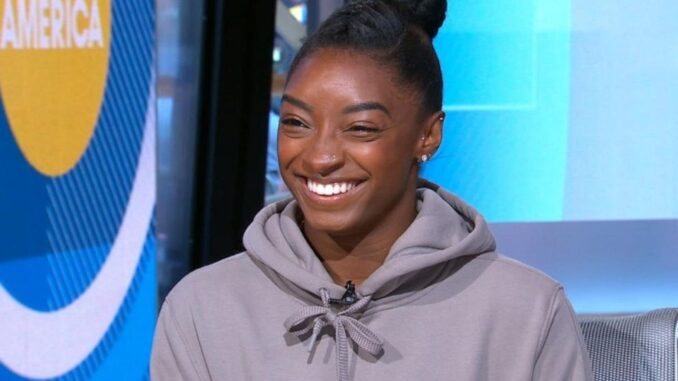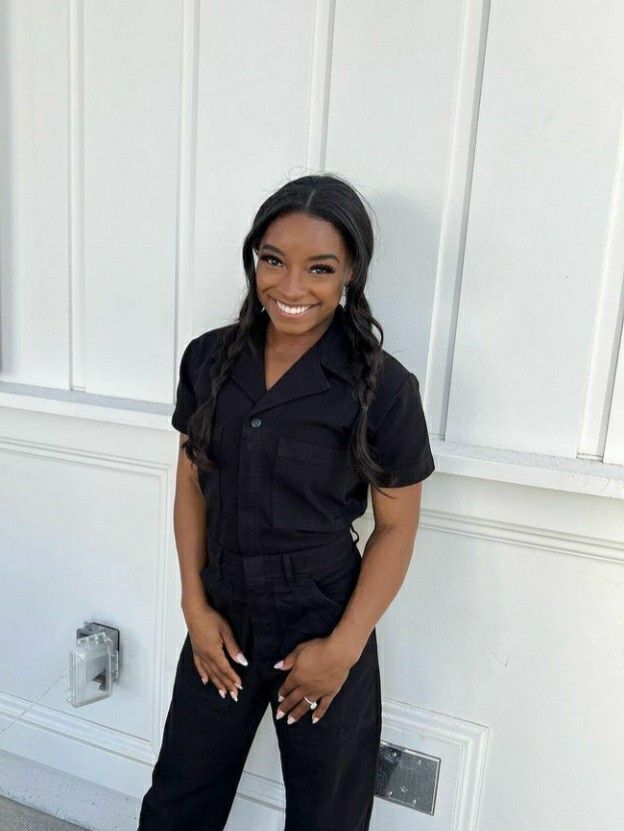
When Simone Biles speaks, the world listens. Recently, the gymnastics icon stepped into one of the most heated debates in American sports culture, addressing racism and fairness issues linked to Riley Gaines and the ongoing controversy around sports equality. Her words have reignited conversations about justice, inclusivity, and what fairness truly means in athletics.
In this article, we’ll unpack the controversy, break down what Simone Biles said, and explore the broader implications for sports, athletes, and society.
Who Is Simone Biles and Why Her Voice Matters
Before diving into the controversy, let’s get one thing straight: Simone Biles isn’t just any athlete. She’s the most decorated gymnast in history, a four-time Olympic gold medalist, and a role model for millions worldwide. Beyond her physical achievements, Biles has become a powerful advocate for mental health, equity, and justice.
Her influence stretches far beyond the gym. When Biles calls out racism or fairness issues, it isn’t just commentary — it’s a statement that demands attention.
The Riley Gaines Controversy Explained
Riley Gaines, a former collegiate swimmer, has become a vocal figure in debates about fairness in women’s sports. She has strongly opposed the inclusion of transgender women in female competitions, sparking nationwide arguments about biology, gender identity, and equity.
Her stance has drawn both support and criticism. Supporters claim she’s protecting women’s rights, while critics argue her rhetoric often dismisses inclusivity and equality.
Simone Biles Steps Into the Debate
So, where does Simone Biles come in? Recently, she voiced concerns over how the conversation has been framed — especially when it involves racial bias. Biles pointed out that discussions around fairness often overlook systemic racism, particularly in how athletes of color are treated in comparison to their white counterparts.
Her comments shed light on how racism intersects with the larger conversation about fairness in sports.
Racism in Sports: Not a New Story
Let’s be real — racism in sports isn’t breaking news. From Jackie Robinson breaking baseball’s color barrier to Serena Williams facing double standards in tennis, Black athletes have long been judged differently.
For Biles, speaking up is part of continuing that legacy of resistance. She’s challenging the idea that fairness can only be measured through one lens (like gender or biology) without acknowledging how race plays a role in shaping opportunities and perceptions.
Why Simone’s Voice Resonates More Than Others
You might be wondering: Why does Simone Biles’ take matter so much compared to others?
The answer is simple — credibility and lived experience. Simone has faced racism firsthand. Whether it was being judged more harshly than white gymnasts or being excluded from endorsements early in her career, she knows how bias works.
Her words carry weight not just because of her medals, but because she’s lived the reality many athletes of color endure silently.
The Double Standard Athletes Face
One key point Simone Biles highlighted is the glaring double standard in sports. Black athletes are often expected to perform flawlessly, while mistakes from white athletes get excused or overlooked.
Think about it: if a Black athlete pushes for fairness, they’re called “angry” or “difficult.” But when a white athlete does the same, they’re praised as “brave.” This hypocrisy is exactly what Biles is calling out.
The Role of Social Media in Amplifying Voices
Let’s not ignore the elephant in the room — social media. Platforms like Twitter and Instagram have become battlegrounds where voices like Simone Biles and Riley Gaines clash.
While Gaines has built a platform around fairness in women’s sports, Biles is using her influence to expand the conversation, pointing out blind spots others may not want to acknowledge.
Fairness vs. Equality: What’s the Difference?
Fairness and equality sound similar, right? But here’s the kicker — they’re not the same thing.
-
Equality means treating everyone the same.
-
Fairness means giving people what they need to succeed, acknowledging that not everyone starts from the same place.
Biles is essentially reminding us that fairness in sports can’t be reduced to one single issue. Racism, gender, and identity all intersect, and pretending otherwise creates an incomplete picture.
The Backlash Against Simone Biles
Of course, not everyone agrees with Biles. Some critics argue she’s politicizing sports or dismissing concerns raised by athletes like Gaines. Others accuse her of playing the “race card.”
But here’s the truth: silence is no longer an option. If athletes like Biles don’t speak out, the same old narratives will continue unchecked.
How Athletes Have Always Driven Change
Sports have always been a stage for social justice. Think Muhammad Ali, Tommie Smith, John Carlos, Colin Kaepernick — and now, Simone Biles.
By speaking out, Biles continues a tradition where athletes use their platforms to push for a fairer, more inclusive society.
What This Means for Future Generations
Let’s zoom out for a second. Imagine the next generation of athletes watching Simone Biles take a stand. They’ll learn that sports aren’t just about medals and trophies — they’re about integrity, courage, and fighting for what’s right.
This is bigger than gymnastics. It’s about shaping a culture where athletes don’t have to choose between speaking their truth and keeping their careers safe.
The Intersection of Race and Gender in Sports
One of the most important takeaways from Biles’ comments is that race and gender issues aren’t separate. They’re deeply connected.
For Black women athletes, the struggle is doubled — they face racism and sexism simultaneously. That’s why Biles’ perspective is so critical: she embodies this intersection, and she refuses to let the conversation ignore it.
What Fairness Really Looks Like
So, what would fairness actually look like in sports?
-
Equal opportunities regardless of race or gender.
-
Recognition of bias in judging and media coverage.
-
Policies that protect both inclusivity and competitiveness.
It’s not about choosing one group over another. It’s about creating systems where everyone gets a fair shot.

The Bigger Conversation Beyond Riley Gaines
While Gaines’ name has been central to the controversy, Simone Biles is pushing us to think bigger. This isn’t just about one athlete or one debate — it’s about the culture of sports itself.
Are we willing to confront uncomfortable truths about bias? Or will we keep pretending fairness is only about one dimension?
Conclusion: Simone Biles Redefines the Debate
At the end of the day, Simone Biles didn’t just call out racism — she reframed the entire conversation. By stepping into the Riley Gaines controversy, she reminded the world that fairness isn’t just about gender, but about the broader systems of inequality that shape sports and society.
Her courage ensures that the debate won’t stop at surface-level arguments. It pushes us to ask harder questions, confront bias, and imagine a sporting world that truly lives up to its ideals of fairness and equality.
FAQs
1. What exactly did Simone Biles say about Riley Gaines?
She highlighted how racism plays a role in the broader fairness debate and called out double standards faced by Black athletes.
2. Why is Simone Biles speaking out now?
Because the controversy around Gaines has amplified discussions of fairness, and Biles wanted to make sure racial bias isn’t ignored.
3. How have people reacted to Simone Biles’ comments?
Reactions have been mixed — many praised her for being brave, while critics accused her of politicizing sports.
4. What does this mean for women’s sports?
It expands the conversation, showing that fairness in sports must consider race, gender, and inclusivity together.
5. Has Simone Biles spoken about social issues before?
Yes, she has been an advocate for mental health, equity, and justice throughout her career.